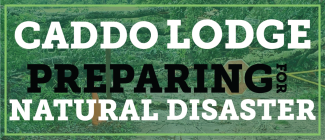
Since 2004, September has been recognized as National Preparedness Month in the United States. Every Scout is of the phrase “Be Prepared” regularly throughout their Scouting career, but what are some methods and ways that we, as Arrowmen, can ensure that we are ready in the case of unexpected situations? How can we create emergency plans that not only keep everyone safe but also keep everyone calm and controlled? How can we, as leaders, stay prepared?
For the Arrowmen of Caddo Lodge, located in Norwela Council of the Northwest part of Louisiana, these questions are more than a common occurrence; they are a necessity. Louisiana is known for its severe weather, from extremely high temperatures to hurricanes, tropical storms, tornadoes, and, rarely, snowstorms. Weather patterns are consistently inconsistent in the south, and rain or high temperatures can affect nearly every campout. While natural disasters may seem common, each one brings new fears, challenges, and a different approach to alternative planning and improvisation.
These challenges became a reality for Caddo Lodge Arrowmen and Norwela Council Summer Camp Staff after severe storms producing tornadoes blew through their camp in mid-June, leaving most of it inaccessible and destroyed just days before over 100 Scouts were expected to arrive to kick off the council’s camping season. Kinsey Scout Reservation was devastatingly damaged: hundreds of trees had fallen, dozens of power lines were grounded, there was no electricity or water access anywhere on camp, and barely enough signal to communicate with the surrounding area. About fifteen staff members were still on the property when the storms came through in the middle of the night.
Camp Director Scott Alexander recalls, “When the storm hit us, we had everyone on camp safe in less than fifteen minutes from the initial weather report.”
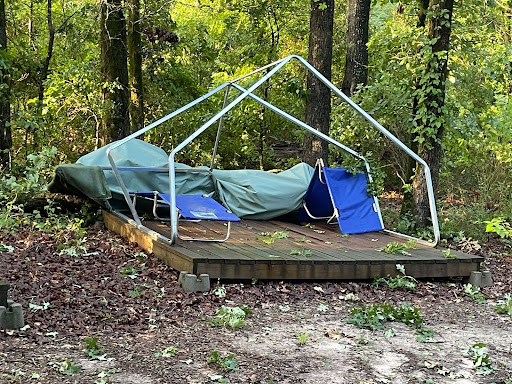
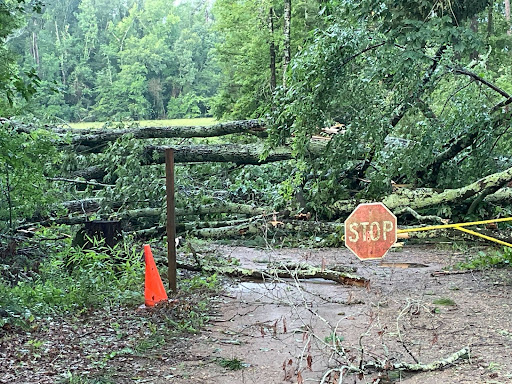
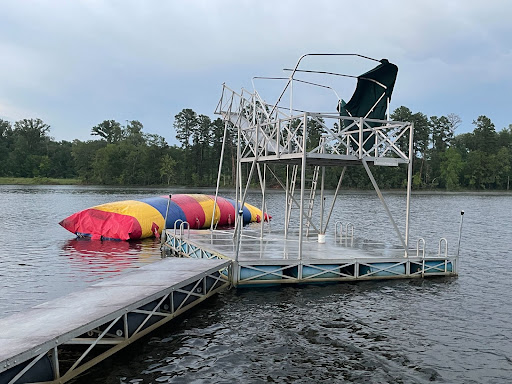
The main objective in any severe weather circumstance is, first and foremost, safety. The safety of everyone present will always be the main priority; things can be replaced, and camps can be rescheduled, but you cannot replace a Scout or Scouter. Routine headcounts, double and triple checking that everyone is present, and communicating quickly and effectively if a person is not present are all vital to preserving the safety of others.
One of the most difficult decisions any leader can make is to cancel an event due to the adverse effects of inclement weather.
Alexander stated, “So many people give up their time, their resources, and they work so hard to make any camp a quality experience and it's hard to have it all come to a crashing halt due to a bad storm or other unforeseen incident.”
In the event that this happens, the best thing to do is to get with other lodge leaders and start brainstorming alternative events. Hosting a cookout at a local recreational area, an alternate campout at a state park, or a fun get-together at a venue are all great ways to retain the fun aspects of an activity or event, even if the event was canceled. The main thing to remember is to keep moving forward; staying stuck on a canceled event will not help you to start planning the next fun occasion.
So, what do you do when you have to cancel large portions of a schedule? What if you are in the middle of a camp full of Scouts? The simple answer is to effectively improvise. Quickly find a team of staff, and just start singing songs, acting out skits, and playing games. The best way to pass time during a situation like that is to find the fun. Improv routines, indoor campfires, and even makeshift merit badge classes are all possible, just as long as you stay positive and focused on creating good energy in a bad situation.
“You have to be flexible. The funniest example I can give is that we moved a canoe into our dining hall, put it on a rolling table, and had scouts simulate the proper strokes since we were facing extremely inclement weather for several days. And yes, you can get a sailboat into our dining hall, ask me how I know,” Alexander jokes.
If planned correctly, an Ordeal, summer camp, or any other event challenged by an inclement weather event will become a story that Scouts and Scouters will tell for the rest of their lives. Rachel A., the Caddo Lodge Secretary, shared some stories about her experience with inclement weather.
During her Ordeal weekend, rain was expected, as it’s regular to almost every Louisiana campout. The lodge held the ceremonies indoors in the dining hall and remained there through the rest of the evening for dinner and fellowship. Around 10 p.m., they got a severe weather warning for some tornadoes coming through the local area. Immediately, the lodge leadership moved every Arrowman into the kitchen area, since it was the most secure part of the building, and kept everyone calm by cracking jokes or singing camp songs in small groups.
“I think what makes this so memorable for me was that this was my first real experience within the OA, and getting to see effective leadership in a dangerous situation firsthand like that is something that has stuck with me, even until now,” reflected Rachel.
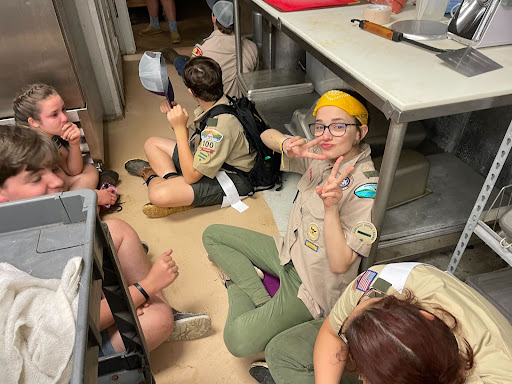
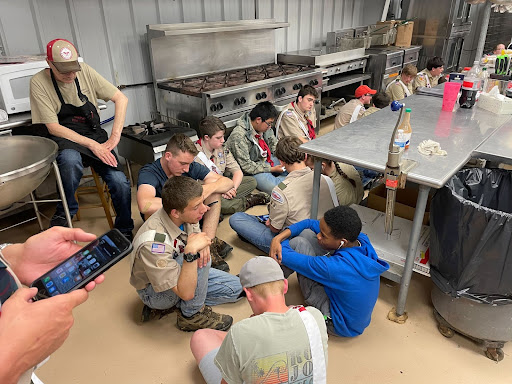
Some major points to remember during these situations are:
1. Stay Informed. Emergencies can never be excused by a lack of planning. Check local weather reports, stay updated on local weather safety regulations, and have a detailed plan of action in the case of a severe weather circumstance.
2. Treat each weather alert as if it is heading straight towards you. You can never truly predict when or how hard severe weather will hit your local area, so it is better to be over-prepared for a small storm than to be under-prepared for a major storm.
3. Practice and Teach. Thoroughly discuss your emergency plan with fellow leadership. Teach your emergency plans to your staff, adults, and even youth. Also, communicate with adults and local agencies to ensure the highest level of preparation and safety.
By staying prepared, staying informed, and staying positive, you can guarantee the success of an event, even in the face of a natural disaster. Be sure to routinely take hazardous weather training, and keep Scouting safe and fun!